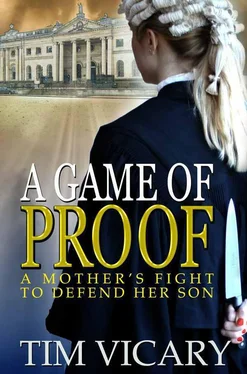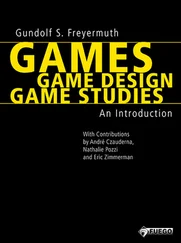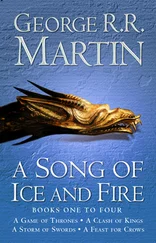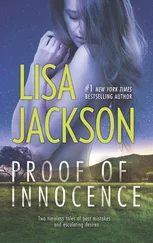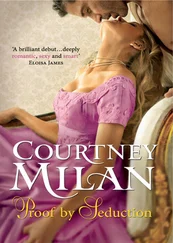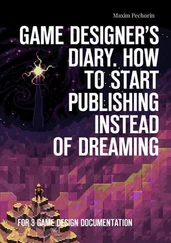Tim Vicary - A Game of Proof
Здесь есть возможность читать онлайн «Tim Vicary - A Game of Proof» весь текст электронной книги совершенно бесплатно (целиком полную версию без сокращений). В некоторых случаях можно слушать аудио, скачать через торрент в формате fb2 и присутствует краткое содержание. Жанр: Криминальный детектив, на английском языке. Описание произведения, (предисловие) а так же отзывы посетителей доступны на портале библиотеки ЛибКат.
- Название:A Game of Proof
- Автор:
- Жанр:
- Год:неизвестен
- ISBN:нет данных
- Рейтинг книги:3 / 5. Голосов: 1
-
Избранное:Добавить в избранное
- Отзывы:
-
Ваша оценка:
- 60
- 1
- 2
- 3
- 4
- 5
A Game of Proof: краткое содержание, описание и аннотация
Предлагаем к чтению аннотацию, описание, краткое содержание или предисловие (зависит от того, что написал сам автор книги «A Game of Proof»). Если вы не нашли необходимую информацию о книге — напишите в комментариях, мы постараемся отыскать её.
A Game of Proof — читать онлайн бесплатно полную книгу (весь текст) целиком
Ниже представлен текст книги, разбитый по страницам. Система сохранения места последней прочитанной страницы, позволяет с удобством читать онлайн бесплатно книгу «A Game of Proof», без необходимости каждый раз заново искать на чём Вы остановились. Поставьте закладку, и сможете в любой момент перейти на страницу, на которой закончили чтение.
Интервал:
Закладка:
Tim Vicary
A Game of Proof
Chapter One
‘My Lord, I call Sharon Gilbert.’
A gust of small movements disturbed the still air of the courtroom, as people coughed, shuffled papers, and leant forward to get the best view of the witness box. The court usher, a woman in a pink blouse and black robe, opened the door in the panelled wall at the back of the court. ‘Sharon Gilbert, please.’
At the barristers’ table in the well of the court, Sarah Newby leant forward, her fingers laced under her chin. This was the first time she would see the victim, the woman the prosecution said her client had raped. The woman whose evidence she would have to demolish, to keep Gary Harker out of prison. The woman whose reputation she would have to destroy, to continue the steady rise of her own. Sarah had been a qualified barrister for three years and this was her first rape case. A great opportunity, if she did well. The first step on the ladder to becoming a Queen’s Counsel, like the Crown Prosecution barrister, Julian Lloyd-Davies QC, who stood next to her facing the jury.
Lloyd-Davies placed his notes on the portable lectern which he had brought with him, and tapped a silver pencil on it nonchalantly as he waited for his witness to appear. Where Sarah was intent and nervous he appeared calm, relaxed and confident. The lectern, silver pencil, silk gown and expensive tailored suit were all signs of a status that Sarah both coveted and feared. Beside him sat his junior, James Morris, pen poised to take notes. I belong here, all these things said, this is my stage to command. Sarah felt like a novice beside him. Even in her best Marks and Spencer black suit, tight starched wing collar and bands, she was painfully conscious of how the black cotton of her gown marked her out as a junior barrister like James Morris, someone who would normally assist a QC in a case like this rather than lead it herself.
In front of the barristers sat the judge, his lordship Stuart Gray, raised high on his dias under the prancing lion and unicorn of the royal coat of arms. His long cadaverous face surveyed her from under his wig with drooping bloodhound eyes. He had once practised as a QC too, Sarah reflected gloomily, and before that no doubt attended one of England’s best public schools — perhaps the same one as Julian Lloyd-Davies.
Certainly he had not left school at fifteen and spent his teenage years, as Sarah had, bringing up a baby on one of the worst council estates in Leeds.
Sarah drew in a slow, deep breath and let it out again, tensing the muscles of her stomach as the butterflies danced within. ‘I’ve earned the right to do this and here I am,’ she thought. ‘ They didn’t have to fight to get here, but I did. And if I win this time, it will be the best ever.’
A woman came through the door in the back of the court and looked about her uncertainly. She was a tall, slim woman in her late twenties, smartly dressed in a green suit with three quarter length sleeves. The waves in her long, bleached shoulder-length hair suggested hours of careful attention in front of the mirror. She entered the witness box and took the testament and card from the usher.
‘Take the book in your right hand and read the words on the card.’
‘I swear by Almighty God that the evidence I shall give shall be the truth, the whole truth, and nothing but the truth.’
The words were clearly, almost defiantly spoken. Sarah watched as Sharon Gilbert handed the book and card back and looked around. Like many witnesses, she seemed struck with a sense of shock and wonder that she could actually be here, beneath the great domed roof and stucco pillars of York’s magnificent eighteenth-century courtroom. Or perhaps she was shocked by the audience of students and idlers in the public galleries, as well as the row of pressmen, all here to listen to the intimate evidence she would have to give.
Sarah watched carefully, trying to assess her character. Many witnesses were terrified by this court, and mumbled their way miserably through their evidence as though in a public library; others seemed to revel in the theatrical opportunities the public stage gave them. It looked as though Sharon Gilbert might be one of the latter. She could hardly fail, after all, to have read the pre-trial press publicity; she knew how important she was.
As Julian Lloyd-Davies began his introductory questions, designed to establish a few basic facts and put the witness at ease, Sarah Newby sat quite still at the table beside him, listening intently. What sort of person was she, this victim of a brutal, humiliating rape? Well-dressed, attractive, certainly — she had taken great care with her appearance today. The accent was local, however, uneducated; the way Sarah herself had spoken until she had learned to moderate her vowels at the Middle Temple. Probably most of the jury spoke as Sharon did.
More important was the sense of character that came through Sharon Gilbert’s voice. It was strong, clear, brash — the voice of a woman who knew her own mind, or thought she did; but was also afraid of contradiction and expecting it. One of life’s victims, perhaps, but not a submissive one; not someone who would break down in tears on the stand and have to be coaxed through her evidence as many rape victims did, Sarah thought.
She was glad of that, at least. From the moment she had been given this case, she had been concerned about what she might have to do in cross-examination. She was not worried that she might not be incisive or brutal enough; she believed she was good at that and hoped she was getting better all the time. In her three years of practice she had already taken several notable scalps. One defendant had left the box blustering vainly, entangled in his own deceit; a second had stood silent, unable to answer her final, devastating question; two more had wept. A surge of mixed pride and pity had flooded through her in those moments: pity, at the public humiliation she had inflicted; but far greater pride, that her own skill had won the case, and she could rejoice in her success in the vicious game played out in court.
But so far she had been lucky, for her victims had deserved it — burglars, a mugger, a fraudster, a brutal policeman.
A rape victim would very different. Sarah was enough of a feminist to have felt some initial reluctance about defending a man — particularly a violent petty criminal like Gary Harker — accused of rape; but as Lucy Sampson, her solicitor, had said, ‘if you don’t do it, a man will, and how will that help the victim?’ After all, everyone deserved a good defence, she told herself; if she was to be a proper barrister she must take what came; there could be no no-go areas. But that all had been in the abstract; now she was here, watching a woman prepare to tell the story of her brutal rape by the man it was Sarah’s job to defend.
To do that, she would have to divert some of the jury’s sympathy away from the victim to her client. And to herself. The witness might feel she was on stage; but the barristers controlled the drama. If the woman were shy or nervous it would be child’s play to humiliate her by dwelling on the physical details of the crime or her previous sexual morality — techniques practised by male lawyers over many years. But Sarah wanted to avoid this, if she could. A tearful victim, bullied by the defence lawyer, would only turn the jury’s sympathies even more against her client, who was an unpleasant enough thug in the first place.
But nonetheless, he denied rape; so it was Sarah’s job to test the truth of Sharon’s story with all the skill at her command. She was hugely relieved that her first impression was of a tough, forthright woman who would stand up to questioning.
Читать дальшеИнтервал:
Закладка:
Похожие книги на «A Game of Proof»
Представляем Вашему вниманию похожие книги на «A Game of Proof» списком для выбора. Мы отобрали схожую по названию и смыслу литературу в надежде предоставить читателям больше вариантов отыскать новые, интересные, ещё непрочитанные произведения.
Обсуждение, отзывы о книге «A Game of Proof» и просто собственные мнения читателей. Оставьте ваши комментарии, напишите, что Вы думаете о произведении, его смысле или главных героях. Укажите что конкретно понравилось, а что нет, и почему Вы так считаете.
